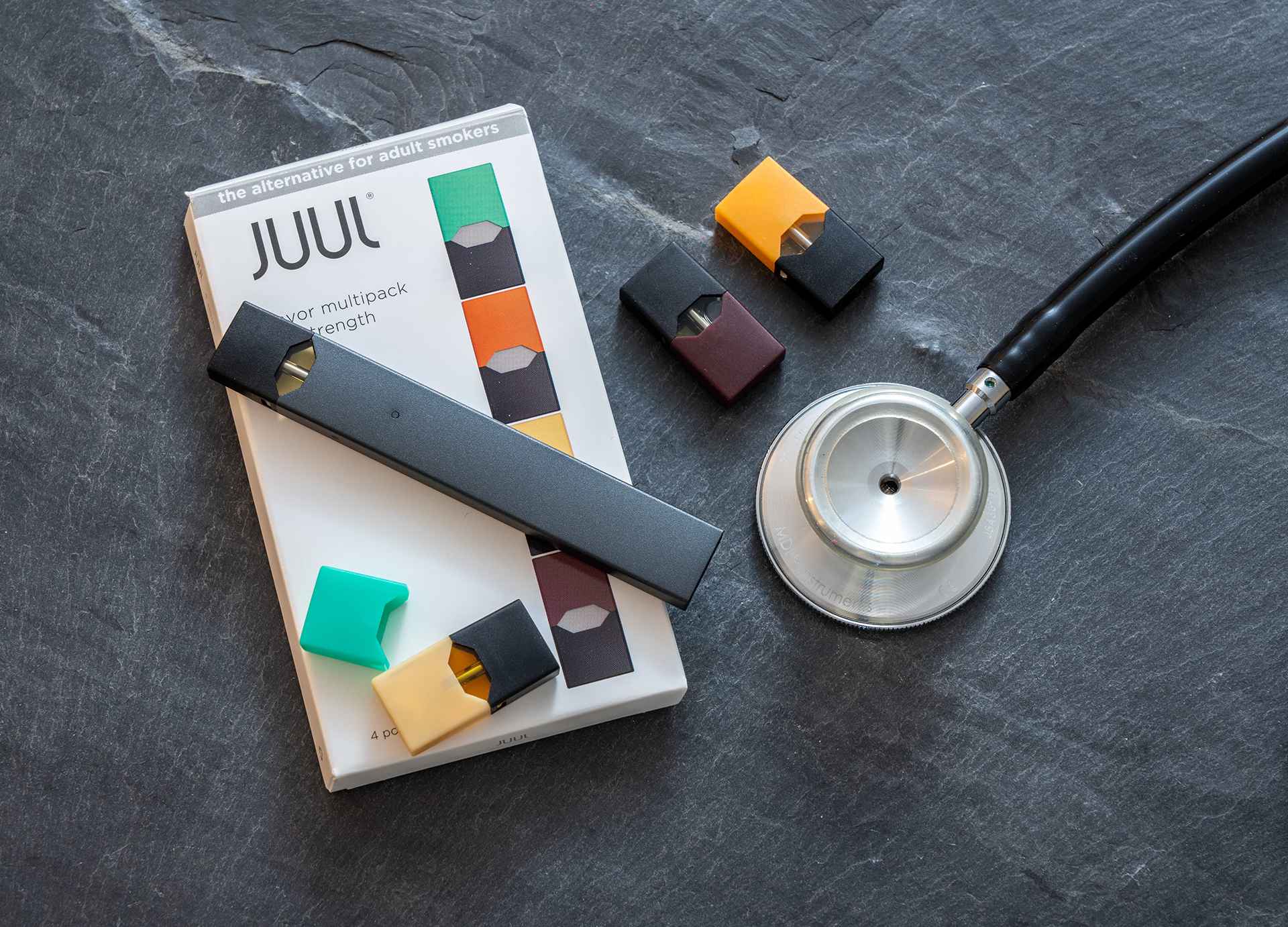Is JUUL bad for you? Yes.

JUUL vaping devices splashed onto the market in 2015 with the stated mission of “improving the lives of the one billion adult smokers” on the planet. It claimed its primary mission was to help those already smoking traditional cigarettes and tobacco products to quit smoking. However, JUUL acquired this lion’s share not by converting adult smokers, but by creating a new generation of nicotine addicts through shrewd and aggressive social media campaigns, a clever and easily disguisable product design, and other business strategies that targeted U.S. teens and children. Juul has already reached $40 million settlement in North Carolina.
According to the FDA, the use of e-cigarettes by high school students increased by 20 percent just from 2017 to 2018. Due to a lot of aggressive marketing techniques that are aimed towards young generations and previous non-smokers, JUUL® and other e-cigarettes have become the number one choice for nicotine consumption. In just 4 years on the market, JUUL® has become so popular among young people that the company has captured over 70% of the e-cigarette market share, according to Bloomberg Businessweek. An estimated 3.6 million high school and middle school students are now vaping. In late 2018, the US Food and Drug Administration reported youth e-cigarette use has reached "epidemic proportions."
What's In a JUUL Pod?
The liquid inside JUUL cartridges contains glycerol, propylene glycol, flavoring, benzoic acid, and 40 milligrams of nicotine.
Medical professionals are very concerned because JUUL delivers higher concentrations of nicotine than other vaping devices. According to a study published in The Lancet, the liquid in JUUL is 5% nicotine by volume, which is more than twice the concentration of nicotine in similar devices like the Blu vape cartridge (2.4% nicotine). This increases the risk of addiction; in fact, a study done by the UK’s Royal College of Psychiatrists showed that nicotine is about as addictive as cocaine and even more addictive than alcohol and barbiturates (anti-anxiety drugs).
JUUL and Vape Related Injuries
The Centers for Disease Control and Prevention (CDC) is investigating an outbreak of severe respiratory illness affecting people who recently used vaping products like JUUL. As of Oct. 10, 2019, more than 1,000 people in 48 states and one U.S. territory have been affected by EVALI, and at least 23 of those sickened have died.
Among 889 patients with data on age and sex, the median age of those who developed the lung injury were between the ages of 13 and 75, with 81% being younger than 35. Sixteen percent of patients were younger than 18, and 21% are between the ages of 18 and 21.
The United States Surgeon General has concluded that e-cigarettes, including JUUL®, are not safe for anyone under the age of 26. Nicotine addiction can permanently damage the adolescent brain.
Symptoms of vape-related lung injury include:
- Cough
- Shortness of breath
- Chest pain
- Nausea, vomiting, or diarrhea
- Fatigue
- Fever
- Abdominal pain
- Seizures
Although none of these health effects are necessarily guaranteed, addiction continues to increase nicotine users’ risks of developing them throughout their lives. The younger you start, the more time there is for continuous nicotine use to have a negative impact on your health.
The number of e-cigarette lawsuits have been growing alongside rapidly increased e-cigarette use among teens and young people. Many e-cigarette lawsuits target JUUL Labs Inc., which accounts for about 75 percent of the e-cigarettes sold in the United States. Those lawsuits also name Altria-Philips Morris, the Big Tobacco company that makes Marlboro and other tobacco cigarettes. Altria purchased 35 percent of JUUL® in December 2018.
If you, a child, or another loved one have used JUUL® e-cigarettes you need to speak up! You might be eligible for financial compensation for your pain and suffering. Don’t suffer in silence.
What Do You Need To Do To Claim It?
Step 1: Click the red button below.
Step 2: On the next page, answer a few questions about your personal situation (takes 30 seconds).
